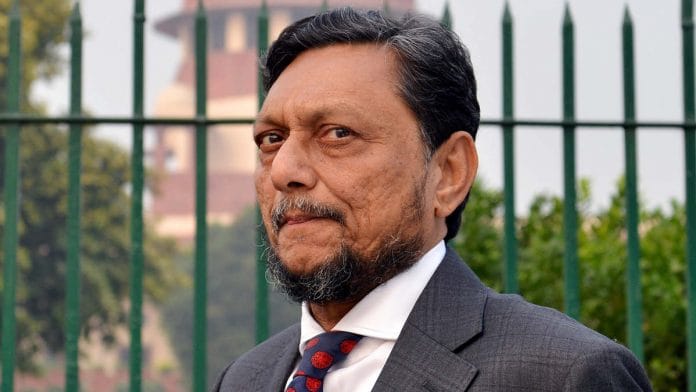New Delhi: The Supreme Court Wednesday acknowledged that the amendments introduced to criminal law after the 16 December 2012 Delhi gangrape have not achieved “desired results”, and took suo motu cognisance of the situation.
A bench comprising Chief Justice of India S.A. Bobde, Justice B.R. Gavai and Justice Surya Kant has decided to carry out an “assessment of the criminal justice system in response to sexual offences”.
The court has sought status reports from the central government, states and union territories on various aspects related to investigations in rape cases, medical examination of the victim and speedy trial.
It has appointed senior advocate Sidharth Luthra the amicus curiae (friend of the court) in the case, and posted the matter for hearing on 7 February.
Also read: SC wants lower courts to speed up rape trials, but 26% judge vacancies make it difficult
Growing problem
The apex court noted that in the latest National Crime Records Bureau report for 2017, 32,559 cases of rape were registered in India.
The delay in such matters, it said, has “created agitation, anxiety and unrest in the minds of the people”.
The court, in fact, noted that the 16 December case was not the only one which had taken so long to attain finality.
It observed: “We are, therefore, of the view that it is necessary to take stock of the implementation of provisions of criminal law, including the said amendments, relating to rape cases and other sexual offences.”
Also read: 7 years after 16 December gang rape case, rape conviction rate low at 32%
Woman police officers, better medical opinions
Among the several questions posed to the authorities, the court has demanded a report on whether all police stations have a woman officer to record FIRs by victims, and whether all district police units have details of special educators or interpreters for mentally or physically disabled victims.
The court also noted that the manner in which medical reports of victims are prepared is also “a matter of concern”. It specifically pointed out that medical opinions sometimes still make observations such as “the victim is habitual of sexual intercourse” and suggest “possibility of consent on the basis of her previous sexual exposure”. It sought to know whether medical experts have done away with the practice of giving such opinions, among other things.
The bench further called for a status report on whether the police is completing the investigation and submitting the final report within a period of two months from the recording of the FIR.
Also read: CJI Bobde recuses himself from hearing Nirbhaya convict’s plea on death penalty review
Nirbhaya fund, women judges
In addition to the need for speedy trials, the court highlighted the need for women judges to hear rape cases.
It asked whether rape and sexual offence trials were being heard by courts presided over by a woman, and whether there were sufficient number of female judges to preside over courts dealing with sexual offence and rape cases.
It also demanded information on utilisation of the Nirbhaya fund, which was created in 2013, in addition to other questions on the adequacy and quantum of compensation being paid to the victims, and formulation of victim/witness protection policies.
Also read: Tihar jail searches for hangman for 16 December rapists as its own officers have refused






